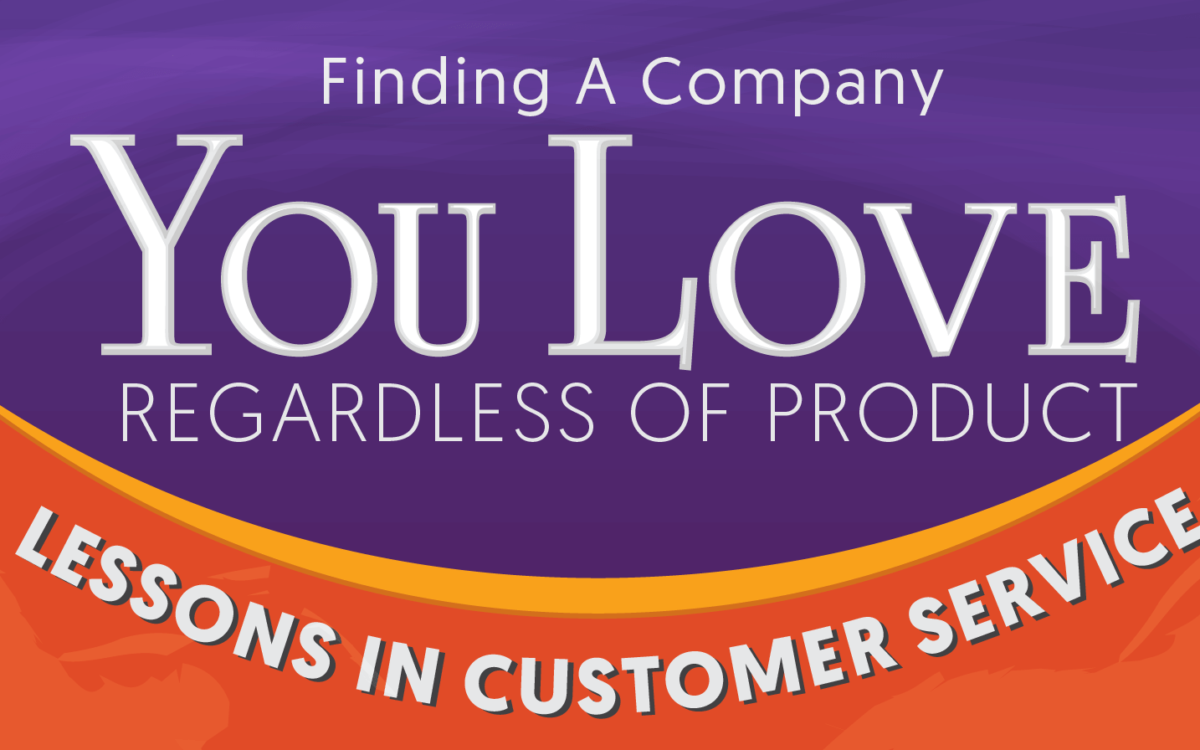
Finding A Company You Love Regardless Of Product: Lessons In Customer Service
This article was written by Sharpen’s VP of Marketing, Murph Krajewski, and originally posted on Forbes.
I love coffee.
There are endless possibilities for making a cup of coffee. From the type and location of the tree to the way the cherries are harvested, processed, roasted and brewed, there are hundreds of touch points where a skilled craftsman can refine the end result that goes into your cup.
The same is true of customer service. As I pass through an organization, there are hundreds of touch points where a brand can either solidify our relationship or prove to me that I’m not important to them beyond the transaction.
Either way, I’m left with an experience that I’ll either seek to repeat or avoid.
Enter Sump Coffee.
Recently, my daughter bought a bag of coffee beans from Sump’s location in St. Louis. We’re both big fans of the divine beverage, so the fact that the price was a little high meant that our expectations were too. We gleefully made our first cups and took that first anxious sip.
We did not love it. At all.
Knowing that the rest of the coffee would not be loved, my wife took it upon herself to send the beans back to the store with a short note about our disappointment, making no request for follow up. My wife doesn’t drink coffee, so she was able to simply report what she saw from us. No ranting. No emotion.
A few days later, we received a package in the mail. It contained a bag of Sump coffee beans, a check and a letter from the owner of the company. The letter read:
Dear Krajewski Family:
Thank you for taking the time to write us regarding your experience with our coffee. I, of course, was personally very disappointed to hear that your experience fell below your expectations. Enclosed, please find a check fully refunding your purchase price of the Las Lajas.
I also wanted to take a moment to provide a little bit more detail about the coffee itself.
I brewed a cup from the bag you returned and there is nothing ‘wrong’ with the roast or the bean and the cup tasted as we intended it to taste. However, with that said, it does not mean that you might find it off putting or surprising, outside of your general coffee experience or otherwise not your style. The problem in my opinion is with the style of this coffee not matching your style of coffee. An analogy would be a very dry versus a sweet red or white wine. It’s about personal preference for (or against) the production process. Where we failed is not communicating clearly to your daughter how the coffee was produced and what she could expect from the cup as a result. Having done a better job at that we would not have recommended this particular coffee. It also appears, from our transaction records that [your daughter] perhaps had less than a high level of service with the person completing her transaction. And on that account too, I apologize.
Thank you.
Scott Carey
We can learn some very important customer service lessons from this simple letter.
1. Scott Carey loves coffee. His passion drove him to become an expert, and his expertise drove him to found a company.
2. As much as Scott Carey loves coffee, he’s more concerned with the relationships people form with his product. This is so true, he’s willing to acknowledge the fact that not every customer is going to love the results of his hard work.
3. Scott Carey did not hide behind polish and PR. He sat down, spent his time and wrote me a letter. He wasn’t trying to avert a social media storm. He was simply trying to connect with (and create) a fellow coffee-lover.
That last comment about my daughter’s transaction experience was made possible by Sump having systems that work together to create a well-rounded single view of their customers. They’re using technology to enhance and strengthen the brand-to-customer bond, a move that’s becoming increasingly crucial for businesses. Sump is using surveys from their point-of-sale system, but with today’s communications platforms, businesses can create whatever experience they can conceive of.
To close the book on my coffee story, I drank the beans that Mr. Carey sent us. I didn’t like them either, but certainly not because they were bad. I like to think of coffee like music. Everyone has their favorite styles, bands and opinions, and both are best shared with friends and lively discussion.
Some things to ponder, as we all strive to elevate our customer-service game:
1. Brands driven by passion give customers something to resonate with beyond a product or service.
2. A non-paying relationship can, at times, be more valuable than a paying one.
3. Customer service is all about authentic, transparent, human connection. Technology should be employed in ways that facilitate the human connection, and it’s more accessible than you might assume.
In conclusion, bravo Mr. Carey. While Sump’s coffee may not be my cup of tea, Sump’s obvious commitment to customer service is.

